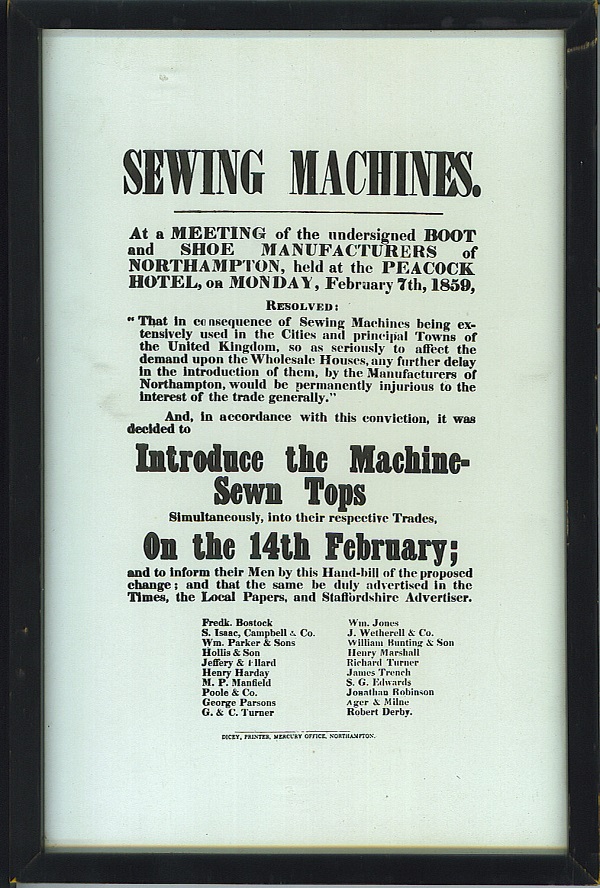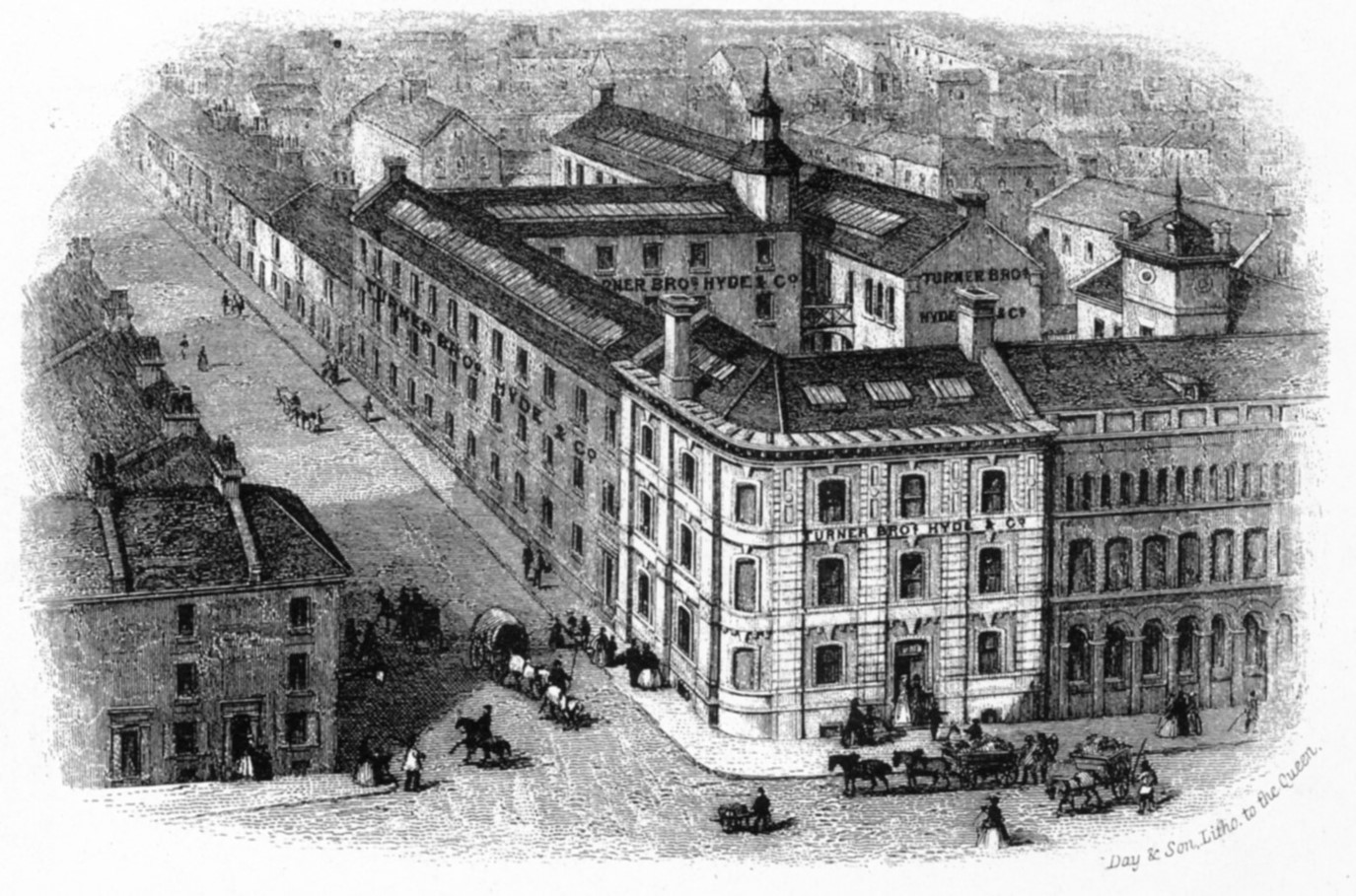Shoes
Northampton shoemaking - factory working

Shoe Machine Poster, 1859
Isaac Campbell and Co.
By the end of the 1850s the first shoe factories had been established. Isaac Campbell and Company’s shoe factory was established in the Mounts in 1859, one of the first purpose built factories alongside that of Moses Philip Manfield. The company intended all their workers to work within a factory but initially promoted it as a warehouse. Isaac Campbell encouraged his workers with the lure of:
'You will labour in healthy, commodious and well ventilated apartments.'
The factory
Their Mounts factory was described as:
'Down below, there is the puff of steam, wheels whirr, bands run down and machinery clanks. Soles are being punched out by iron frames that come down with a thud.”
Conditions were in fact cramped, every square inch utilised. The leather belt system driving the machinery was unprotected creating a thick fog of leather dust that
caused health issues. By 1865 the Campbell Square factory was manufacturing 100,000 pairs of shoes a year.
Messrs Turner Bros. Hyde & Co factory at the corner of Campbell Square and Victoria Street. This was erected for Isaac Campbell & Co in 1857.
 |
Resistance to machines
The transfer from home working to factory working was though a difficult one. Firstly, there was a lot of resistance to the sewing machine. Shoemakers saw them as a threat to their craftsmanship and livelihood. In November 1857 members of the Mutual Protection Society proposed a strike if the machinery was not withdrawn, but the manufacturers were determined to use machinery. A strike was called, urging members to leave Northampton and find work elsewhere. The manufacturers sent work to Leicester and the short strike was over.
The independent shoemaker
Shoemakers have always had a reputation for being independent, working on their own in their own houses, to a great extent masters of their working lives. They are often portrayed as literate and radical non-conformists. The factory system meant the shoemaker no longer owned his own time or could sell his own goods. But all he had to offer was his labour. But the rise of factory working was invetable and by 1894 there were 505 shoe factories in the town.
